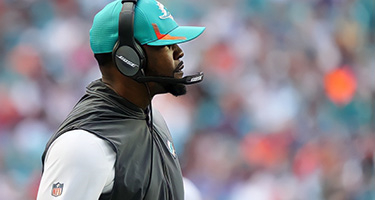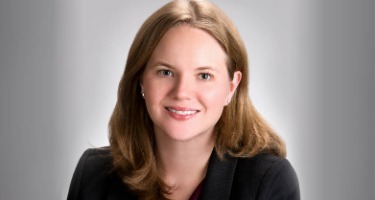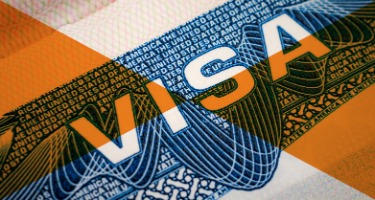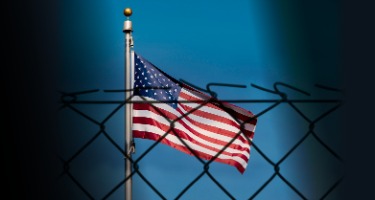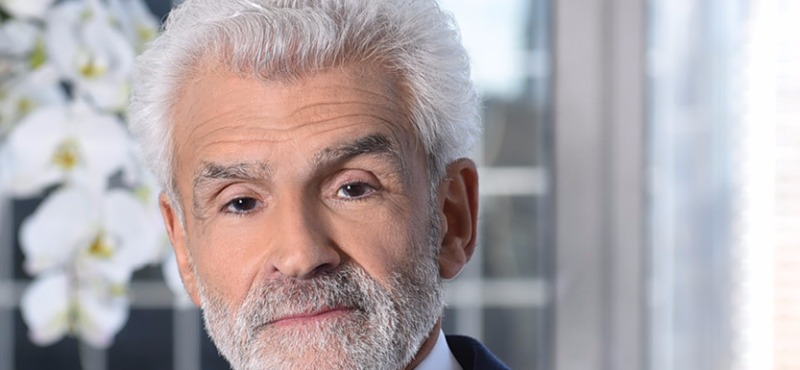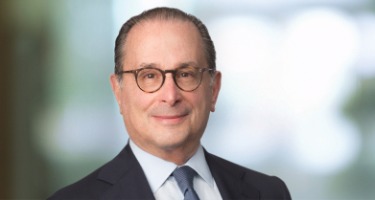An interview with Best Lawyers Advisory Board member Jamie Gorelick of WilmerHale.
How did you get into law?
I started off in private practice at [Miller Cassidy Larroca & Lewin]1, a [small] white-collar litigation boutique where I practiced for 18 years. I developed an in-depth knowledge of grand jury practice, internal investigations, white-collar criminal defense, and civil enforcement-oriented litigation.
Then I went on to become the general counsel of the Department of Defense and then the Deputy Attorney General of the United States, the number two position there. In those positions, I went broad. So if you take those two, the depth and breadth, that’s how my legal practice [developed] when I returned to the practice of law and became [who I am], someone who handles difficult issues at the intersection of law and policy. Typically [I handle] matters that include both the Executive Branch and the Judicial Branch, often the Legislative Branch, and always the press.
Touching on your current work in the different branches of government, tell me a little bit about this current moment.
I’m a Democrat. I strongly supported Hillary Clinton, and I was devastated when she lost.
I’ve taken on many clients seeking to become part of the Trump administration. I’ve done my very best for them. I’ve represented Jared Kushner and Ivanka Trump in their efforts to ensure that their employment by President Trump has been consistent with the anti-nepotism laws. I’ve helped them and several others address the ethical obligations of the individuals who have wanted to serve in governments.
We’ve [also] represented Secretary Tillerson in his transition as Secretary of State. His ethics agreement was pronounced by the Head of the Office of Government Ethics as the platinum standard. We’ve tried to be very conservative and thoughtful in those compliance efforts. Obviously, the investigations arising out of the concerns of Russian involvement in the election have been very interesting. I and others in my firm have been dealing with the various challenges to government regulations or changes in regulatory structures under the Administrative Procedures Act.
Can you speak about what you think is the biggest challenge?
The biggest challenge is trying to be a good and responsible lawyer in a highly fraught work environment.
My view is the rules are the rules. We are a society and a country that respects the rule of law. It is very important to apply those laws equally to everyone and for the lawyers to ensure people get the best and most responsible legal advice as they can.
Just to back up a step in talking about your formative years at [Miller Cassidy]―what was your experience in the courtroom? Any memorable moments?
Both in my formative years and really throughout my career, I have been in positions where there were very, very few women: in criminal law, national security, at the senior ranks of law enforcement, in corporate boardrooms, and among senior Washington lawyers. I’ve enjoyed being the first or among the first in many categories, and I’m very happy to have had wonderful people to follow as well as wonderful people following me.
“We are a society and a country that respects the rule of law.”
Silicon Valley is taking a major beating right now in regards to discrimination and gender politics. What roles can female directors (such as Arianna Huffington at Uber) take on to help address these issues, not just in tech, but in corporate boardrooms across the country?
I have found it to be a powerful influence on companies who have women, not just token women, in the boardroom. In each of the companies on whose boards I’ve sat there have been more than one of us. That includes United Technologies and Verisign.
At Amazon, as you know, there are three amongst the 10 of us. It makes a difference in the questions we ask, the concerns we voice, and the perspectives we bring to bear, both for the employees and the customers.
It does seem to be that without representation at the very top level you’re just not going to “get there” in terms of moving the needle on gender parity.
That’s true. Both companies on whose boards I now sit have women as head of HR. They are focused on issues of diversity in the workplace, which is very, very important.
You’ve taken on some of the biggest cases in our current climate. [Can you tell] me about a landmark case that your firm recently took on?
Apart from the representation of individuals of the Trump administration, I think the most consequential cases that I’ve handled recently are the representation of Baltimore and Chicago in the investigations of their police departments and constitutional rights violations.2
Issues of policing in America are very, very hard. Law enforcement has a tough challenge, which is to keep us safe and also protect our civil rights. Getting that right is difficult, particularly when our cities are so strapped.
We tried hard with respect to both cities we represented to help them get to agreements that would give them a path forward to address community concerns in a way that is implementable. You can’t just leave these cities and communities to their own devices when there are deeply embedded problems. But you also can’t have overly prescriptive government-imposed rules. Getting that right has been an interesting experience and working closely with the Justice Department has been rewarding.
It brings to mind some things [Attorney General] Sessions has mentioned about going back to a set of stricter prosecutorial procedures.
It’s not something I really can comment on right now because we’re in discussions with the Department on those two cases. But one needs to create an appropriate balance, being mindful of the need for constitutional policing while making sure that cities and their police departments can actually function.
On a personal level, what does your day looks like? Do you sleep?
I’ve always liked having a varied professional life. We haven’t even talked about the pro bono work that I do, such as being on the Urban Institute Board, where we are firmly committed to evidence-based policy. We [take] tremendous care to offer policy makers data and analysis on which to make, as a country, better policy decisions. So my day is varied; some days are very long, but they are always interesting.
What are your takeaways from working at Fannie Mae?
First, I spent a lot of my time on multi-family housing. In many places around the country, affordable rental housing is much more important than affordable home ownership. Second, the standard-setting functions of companies like Fannie Mae and Freddie Mac are very important to the stability of our housing market. Third, there is a lot of innovation around the country in community development, and if we [can] harvest the best ideas, we [will] be stronger as a country.
Have you thought about running for political office?
I did, when I was coming out of college. I thought about it and decided not to pursue that. I worried that the ratio of substance to process would not be ideal for me.
What’s the legal climate in your neck of the woods? Is there one word you could use to describe it?
Dynamic.
What about the country as a whole? What do you think is the most pressing legal issue that we’re facing? We’ve had some explosive Supreme Court rulings recently.
Across the country, I would say the most important issue is the challenge to the rule of law. I’m pleased to see our court system functioning as it was intended to, addressing cases on the merits, with the full appreciation of the facts and the law. Do I agree with every decision that is issued? No, but I think the careful consideration of immigration issues and regulatory issues give people comfort that the country is strong.
What do you think about cybersecurity?
My own personal view is that we need to be much more robust in our offense and defense than we currently are. We are loath to do some of the things that we need to be doing to protect our country.
The meddling in the election is just one example. This war is very frightening to see up-close. There’s much more we as a country can do if the government takes the view, as I think it should, that it has an obligation to protect the critical infrastructure of the country. And that includes private assets.
For the most part, companies have been protecting their customers from harm. But I suspect we will see real limitations on corporate ability to do that in the future.
Do you have any advice for the younger folks coming up through the ranks?
Oh, I can give plenty of advice! To people planning their careers: make sure you’re always on a steep learning curve. When you’re not, find something else to do.
At the end of the day, all you have is what’s in your head. Making sure that you’re always learning is a pretty good recipe for a successful and fun career and a pretty good life.
One last question. If you were to do anything other than practice law, what would you do?
Well, that’s really interesting. I kind of do what I want to do, [but] the next thing I’m going to be doing is making sure my firm is in great shape for whenever it is I retire, which is not [going to be] anytime soon.
--------------------
1 Miller Cassidy closed its doors in 2001. Eisler, Kim. "The Perfect Lawyer." Washingtonian.com. https://www.washingtonian.com/2001/05/01/the-perfect-lawyer/ (accessed July 10, 2017).
2 Bushey, Claire. "City legal bill for DOJ police probe hits $3.8 million." ChicagoBusiness.com. https://www.chicagobusiness.com/article/20170113/NEWS04/170119920?template=printart (accessed July 17, 2017).





